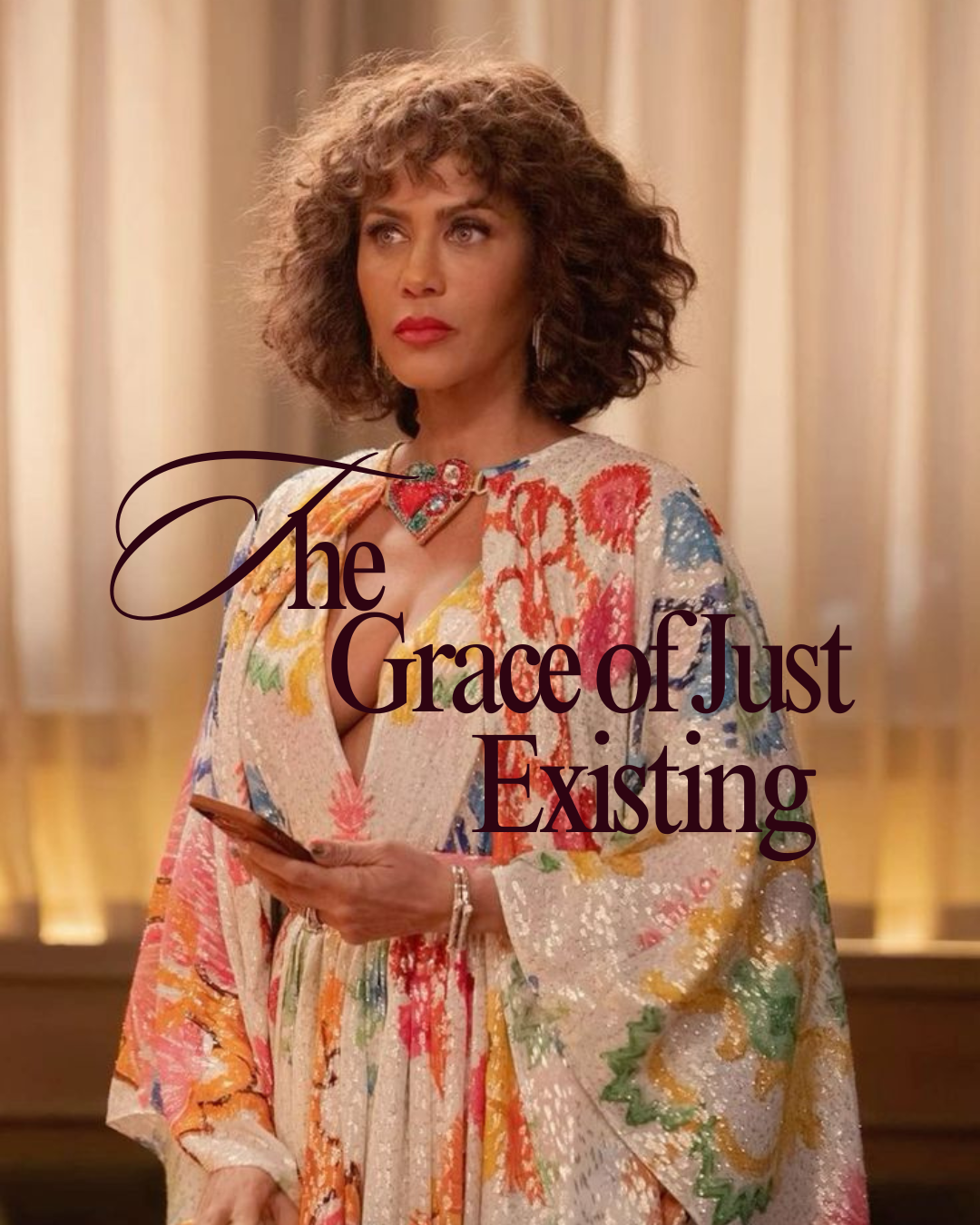There’s something quietly revolutionary about Lisa Todd Wexley sweeping into a scene on And Just Like That in a head-to-toe Valentino. No monologue about “how she got here,” no exposition about pulling herself up from bootstraps, no soft-focus moment of gratitude for being let in the room. She’s just… there. Hosting art benefits. Wearing couture like it’s a second skin. Talking to Carrie Bradshaw as an equal, not an exception.
And that, darling, is the point.
For decades, television has danced around showing Black women in rarefied spaces without attaching a struggle narrative. We’ve been the best friend, the moral compass, the one who’s “earned her place” via some Herculean backstory. Lisa Todd Wexley flips that script. She’s affluent, cultured, well-connected — and she doesn’t have to explain herself. She belongs, full stop.
Of course, she’s not the first to walk this delicate cultural tightrope. The Cosby Show — before its legacy became complicated — was one of the first network series to normalize an upper-middle-class Black family. Claire Huxtable was not just a mother; she was a chic, multilingual attorney who made power suits look like high fashion. She didn’t just balance work and home — she balanced it while delivering withering side-eyes that could dismantle sexism in under ten seconds.
Then came Girlfriends, that delicious early-2000s champagne tower of ambition and friendship. Joan Clayton, the successful lawyer-turned-entrepreneur, showed the anxiety of wanting it all. Maya Wilkes reminded us that upward mobility doesn’t erase where you came from. Toni Childs? The unapologetically glamorous real estate agent who made clear that “bougie” could be both armor and joy. Lynn Searcy was our bohemian philosopher, reminding us that intellect and culture aren’t confined to a corner office. Together, they mapped a range of Black female success stories — messy, flawed, fabulous, and real.
Fast forward to Netflix’s Forever — a series that, in its quiet brilliance, gave us the duality often missing from TV: one branch of a family flourishing in wealth and stability, another navigating the realities of single motherhood and financial strain. Both valid. Both authentic. Both necessary for the full picture of Black life.
Because here’s the thing: representation isn’t just about showing that we can “make it.” It’s about showing that once we’ve made it, we can just be. We can collect Basquiats, sit on museum boards, argue about ballet seasons over dinner. We can also, in the very same breath, hold space for the women grinding on the other end of the spectrum. That’s the richness — the intersection of race, wealth, culture, and the arts.
And the numbers don’t lie. Black women are the most educated demographic in America according to the National Center for Education Statistics. We’re also leading in entrepreneurship — starting businesses at faster rates than any other group, per Harvard Business Review. Yet our pop culture reflection often lags behind our real-life résumé. When we see characters like Lisa Todd Wexley, we’re seeing ourselves not as an exception, but as a norm that’s finally catching up to reality.
In today’s media landscape, where visibility still shapes perception, it matters that little Black girls can see Lisa hosting a charity gala and think, “Yes, of course. That’s an option.” It matters that women in our thirties and forties see Girlfriends reruns and recognize our own circle in them. It matters that stories like Forever allow space for complexity without shame.
Elite doesn’t have to mean white. Success doesn’t have to mean assimilation. And gratitude, while always gracious, doesn’t have to mean bowing at the velvet rope when you built the damn building.
Sometimes, the most radical thing we can do is simply exist — in Chanel, in council meetings, in cultural memory — without asking permission.

